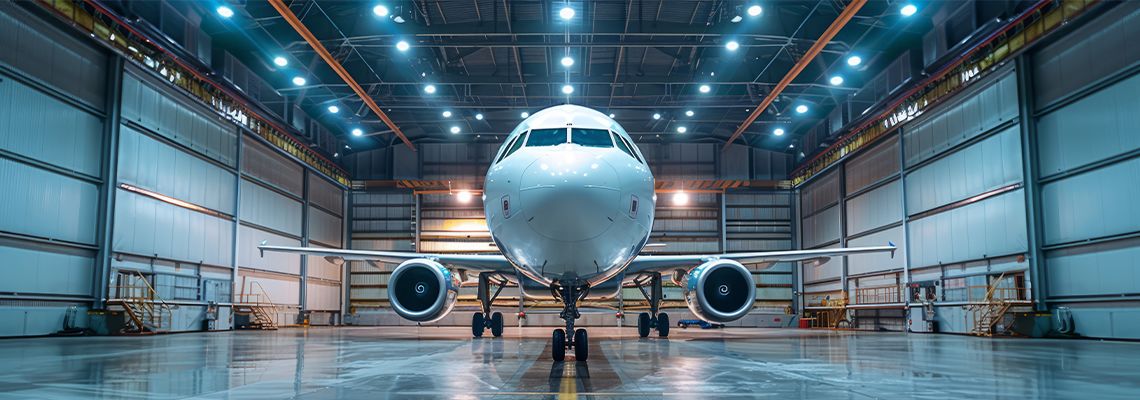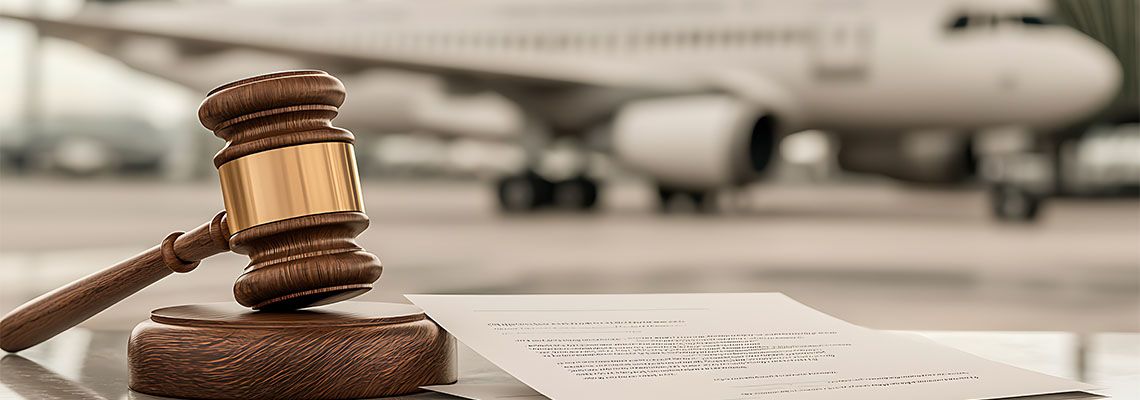Acquiring an aircraft for your business is a monumental step that can revolutionize your operations, improve efficiency, and even offer an edge in a competitive market. However, deciding whether to purchase or lease a plane is no small task.

Issues to Consider in Aircraft Hangar Lease Agreements
When it comes to leasing aircraft hangars, there are several crucial issues to consider. As an experienced aviation attorney and former professional pilot and mechanic, Bill brings a wealth of knowledge to the table. Alongside his many years of experience working with aircraft, he has spent years handling cases regarding aircraft maintenance disputes, aviation litigation, aircraft transactions, representing airports, and representing pilots and maintenance personnel having issues with the FAA. He frequently represents municipalities, FBOs, flight schools, overhaul facilities and others involved in the general aviation business.
Never straying too far from his aviation roots, Bill currently flies and maintains two aircraft, providing valuable insights and unique perspectives on the intricacies of aircraft hangar lease agreements. Here are some important aspects of these agreements that you should keep in mind.
Understanding Lease Terms and Conditions
The lease terms and conditions form the foundation of any aircraft hangar lease agreement. It's essential to scrutinize these terms to avoid potential pitfalls. Bill always advises his clients to thoroughly review the duration of the lease, renewal options, and any early termination clauses.
Leases can vary in length, with some lasting just a year while others span multiple decades. Understanding the implications of each option is vital. Renewal terms should be clearly defined to prevent unexpected complications when the initial lease term expires. Additionally, early termination clauses can be a double-edged sword; they offer flexibility but may come with hefty penalties.
Rent and Escalation Clauses
Rent is another critical component of hangar lease agreements. Bill emphasizes the importance of understanding not just the initial rent but also any escalation clauses. These clauses dictate how the rent may increase over time, sometimes based on inflation rates or fixed percentage increments.
For instance, a lease might include an annual rent increase tied to the Consumer Price Index (CPI). While this might seem straightforward, it can impact long-term affordability. An experienced aviation attorney like Bill can help negotiate more favorable terms or at least provide clarity on what to expect financially over the lease term.
Compliance with Aviation Regulations
Aviation regulations are non-negotiable, and hangar leases must comply with all relevant laws. Bill points out that tenants should be aware of relevant Federal Aviation Administration (FAA) regulations. Any airport receiving federal funds are subject to many considerations in leasing hangars. All leases at airports receiving federal funds are subject to federal regulations.
The Texas Department of Transportation (TxDOT) has an aviation division that makes safety recommendations. They recommend things such as environmental considerations, particularly concerning fuel storage and handling. A lease agreement should clearly state that the hangar and its operations will adhere to any required federal regulations to avoid legal troubles.
Use Restrictions
Use restrictions are another crucial element to consider. These restrictions dictate what activities can take place in the hangar. For instance, some leases might restrict commercial activities or prohibit the storage of certain materials. There is often an issue regarding what maintenance an aircraft owner can perform on his/her own aircraft in a leased hangar.
Bill recommends thoroughly understanding these restrictions to avoid unintentional conflicts. For example, if you plan to conduct aircraft maintenance within the hangar, the lease must permit such activities. An aviation attorney can help clarify any ambiguous terms and negotiate necessary adjustments.
Subleasing and Assignment
Subleasing and assignment clauses determine whether you can sublet the hangar to another party or assign the lease to someone else. Bill highlights that these clauses can offer flexibility, but they often come with strings attached.
Many landlords require prior approval for subleasing or assignment, and some might even charge additional fees. Understanding these terms upfront can save you from unexpected headaches later. Bill’s detail-oriented approach ultimately guarantees that his clients fully grasp the implications of subleasing and assignment clauses.
Default and Remedies
Default and remedies clauses outline what happens if either party breaches the lease agreement. These clauses are essential for protecting your interests. Bill always advises his clients to pay close attention to these terms, and negotiate accordingly.
For example, if you fail to pay rent on time, the lease might stipulate specific remedies, such as late fees or even eviction. Conversely, if the landlord fails to maintain the hangar adequately, the lease should outline the tenant’s options for recourse. Having an aviation attorney review these clauses can help clients understand their options for keeping their aircraft safe.
Environmental Considerations
Environmental considerations are particularly important in aircraft hangar leases. Bill’s experience with aircraft maintenance gives him a keen eye for potential environmental issues that could arise. Leases should address the handling and disposal of hazardous materials, fuel storage, and any necessary environmental permits.
In Texas, state agencies might recommend additional measures, such as spill prevention plans and stormwater management. Making sure that the lease complies with these recommendations is important to any environmentally conscious person who wants to minimize their carbon footprint.
Dispute Resolution
Disputes can arise in any lease agreement, and having a clear dispute resolution process is essential. Bill often includes mediation clauses in the leases he drafts or reviews. These methods can provide a more efficient and cost-effective means of resolving disputes compared to litigation.
An experienced aviation attorney can help determine the best dispute resolution mechanisms based on the specific circumstances of the lease. This allows any disagreements that may arise to be handled promptly and fairly, minimizing disruption to your aviation operations.
If You Have an Issue With Your Lease, Consider Reaching Out
A full understanding of aircraft hangar lease agreements requires careful consideration of numerous factors. From lease terms and rent escalation to maintenance responsibilities and compliance with regulations, each aspect plays a critical role in putting together a smooth leasing experience. As a seasoned aviation attorney and former professional pilot and mechanic, as well as owner of two aircraft, Bill’s detail-oriented approach and understanding of the aviation industry make him a valuable asset in this process.
By addressing any issues you may have upfront, you can avoid potential pitfalls and focus on what truly matters—smooth continuity for your aviation operations. If you need help from an aviation attorney to understand or modify your lease agreement, think about reaching out to Bill at his firm: William G. Harger & Associates, PLLC.
RECENT POSTS
Corporate aircraft are valuable assets that require meticulous care to operate safely, effectively, and in compliance with regulations. For aircraft owners, operators, and aviation businesses, it's not just about ensuring the aircraft remains airworthy but also about protecting the significant investments tied to these machines.
The aviation industry is a dynamic and complex sector, where businesses often collaborate to share resources, reduce costs, and expand their reach. One of the most effective ways to achieve these goals is through a joint venture. Whether it’s a partnership between airlines to streamline operations or a collaboration between manufacturers to develop cutting-edge aircraft technology, joint ventures play a pivotal role in shaping the industry.



